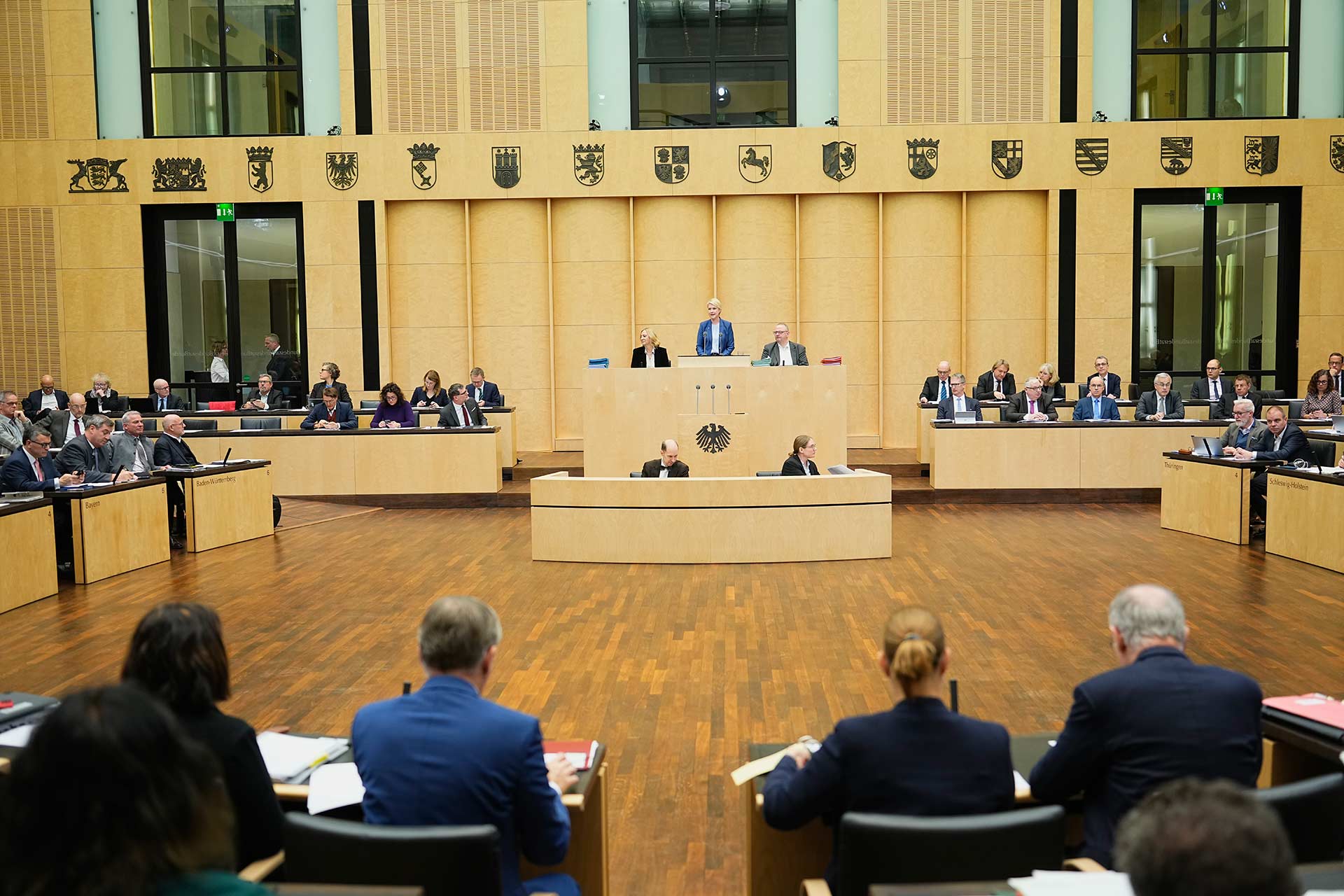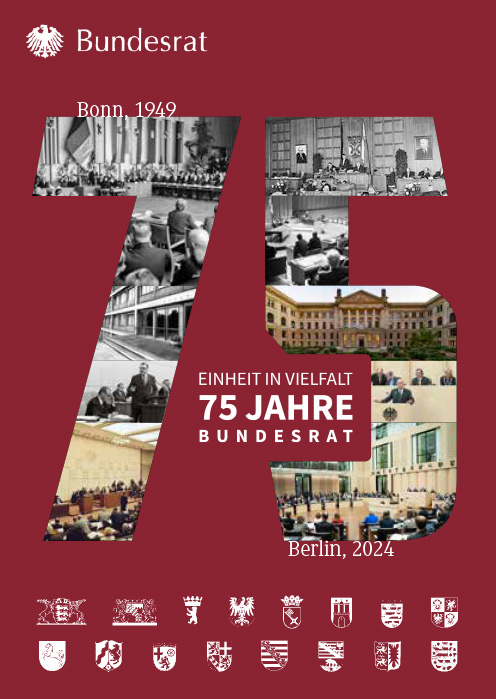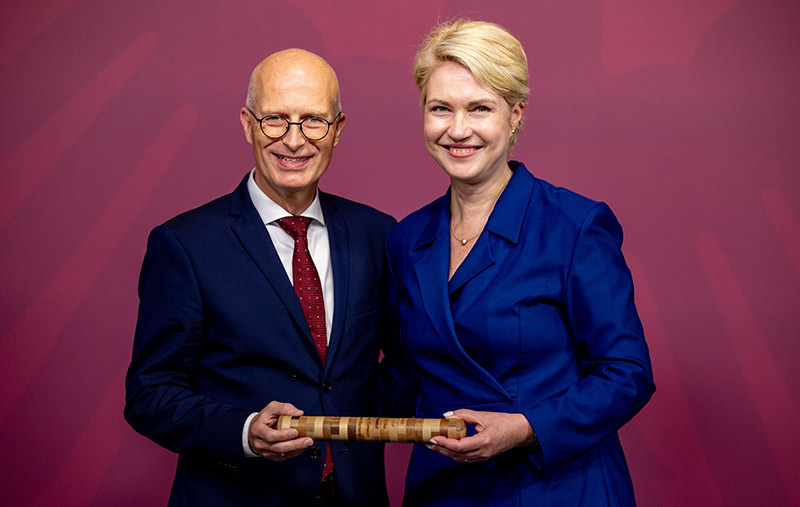
The Bundesrat
The Bundesrat – at the heart of Schwerin
The Bundesrat – the Federal Council – will be presenting its work in a pavilion on the Altstadt car park opposite the Marstall. Meet Manuela Schwesig, the Minister President of Mecklenburg-Vorpommern and presently the President of the Bundesrat. Discover the Bundesrat’s wide range of duties and find out why the work of the Bundesrat affects your everyday life more than you think.
The Bundesrat – at the centre of politics
The Bundesrat, together with the Bundestag, debates and votes on federal laws in Germany. No federal law is passed without the participation of the Bundesrat. This puts the Bundesrat at the centre of politics. It is one of the five permanent constitutional bodies of the Federal Republic of Germany alongside the Federal President, the Bundestag, the Federal Government and the Federal Constitutional Court. The Bundesrat is the federal body that represents the Länder – the federal states
GERMANY’S BASIC LAW STATES:
“The Länder shall participate through the Bundesrat in the legislation and administration of the Federation and in matters concerning the European Union.”
Article 50
MEMBERS OF THE BUNDESRAT:
The members of the Bundesrat are the representatives of the governments of the federal states, i.e., the Minister Presidents, Ministers of the states or the Mayors and Senators from the city states of Hamburg, Bremen and Berlin.
GERMANY’S BASIC LAW STATES:
Article 51 (1)
TWO TASKS –
DOUBLE RESPONSIBILITY:
All members of the Bundesrat have a dual function: they hold a state office as a member of the state government and at the same time a federal office as a member of the Bundesrat; they are state politicians and federal politicians. The members of the Bundesrat therefore bear a special political responsibility.
THE BUNDESRAT:
75 YEARS OF UNITY IN PLURALISM
This year we are celebrating 75 years since Germany’s Basic Law was adopted. The Bundesrat is joining in the celebrations: the first session of the Bundesrat took place in Bonn on 7 September 1949. Find out more about the history of the representation of the federal states and the states in the west and east in the Bundesrat at the Bundesrat pavilion.

LIVE ON THE STAGE OF THE BUNDESRAT
Meet the Minister Presidents on the 2nd, 3rd and 4th of October on the stage of the Bundesrat and learn how politics work in the Bundesrat.
THE STATES
TAKE IT IN TURNS
Every year on 1 November, the Bundesrat elects a different head of government to the office of President of the Bundesrat. The order is determined by the number of inhabitants of the states. The state with the most inhabitants takes first turn, so that each state holds the office once in 16 years. This is symbolic of the equality of the states in the Bundesrat.
GERMANY’S BASIC LAW STATES:
Article 52 (1)
THIS YEAR, IT IS MECKLENBURG-VORPOMMERN’S TURN
MANUELA SCHWESIG
SYMBOLIC TRANSFER OF THE BATON
On the 3rd of October at 4 pm, the baton of the Bundesrat Presidency will be symbolically handed over by Manuela Schwesig to the Minister President of Saarland, Anke Rehlinger, on the Bundesrat stage. This is the traditional highlight of the Bundesrat’s stage programme.
Come and join us!

First Mayor Tschentscher passes the baton on to Minister President Schwesig on 3 October 2023 in Hamburg
